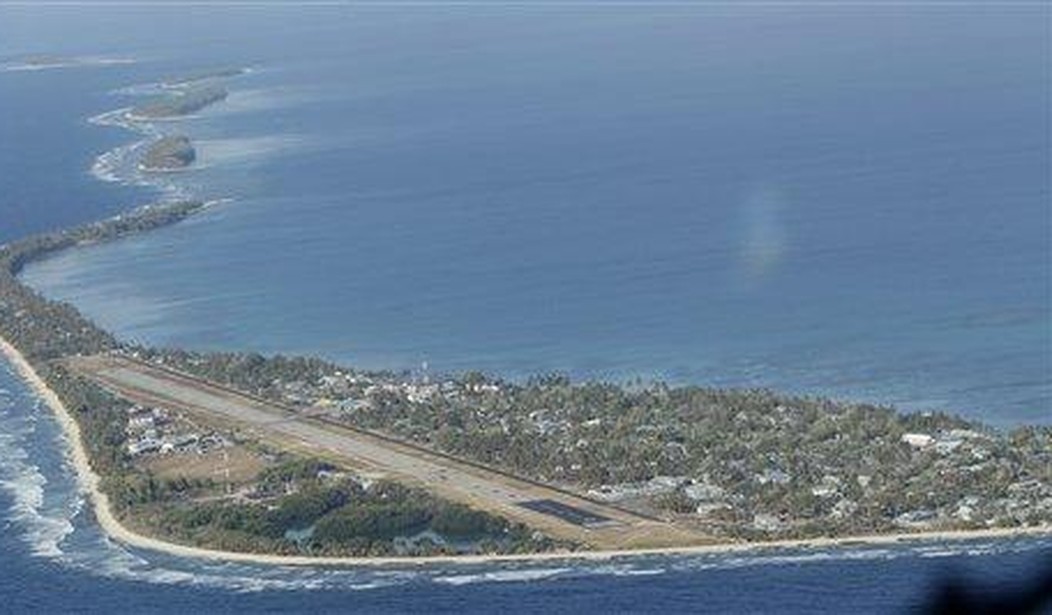The last time we looked at any geopolitical issues stemming from the southwestern Pacific, China was making moves to “realign” the Marshall Islands toward themselves and away from the United States. That situation is still playing out, but Beijing has since scored another, potentially more significant win even closer to some of our allies. It was announced this week that the Solomon Islands have entered into a “security pact” with China. News of negotiations between Beijing and the Solomon Islands capital of Honiara appeared to catch the Biden administration flat-footed. An American delegation was dispatched to the island nation for discussions with Prime Minister Manasseh Sogavare, but before they could even arrive to negotiate, China announced that the deal had already been signed. This is not good news, to put it mildly. (NBC News)
A tiny island chain in the South Pacific has Western governments scrambling after it agreed to a security pact with China that the United States and its allies fear could enhance Beijing’s military power in this strategically important region.
The deal between China and the Solomon Islands, a nation of 700,000 people that had deadly riots last year, poses “serious risks to a free and open Indo-Pacific,” officials from the U.S., Australia, Japan and New Zealand said in a statement on Wednesday.
Alarm in Washington and other capitals is so high that on Friday the highest-level U.S. delegation in years visited the Solomon Islands. Kurt Campbell, the top White House official for Asia, and Daniel Kritenbrink, the assistant secretary of state for East Asian and Pacific affairs, met with Prime Minister Manasseh Sogavare in Honiara, the capital.
The Solomon Islands are well to the southwest of the Marshall Islands, just to the east of Papua New Guinea, and off the northeastern coast of Australia. The new security agreement would allow China to send both police and military forces to the islands “to assist in maintaining social order.” Also, China will be able to bring their warships into port there for resupply or repair reasons. This effectively gives China yet another launching point to project naval power in a part of the pacific previously controlled by allies of the United States.
The Solomon Islands have been experiencing significant unrest over the past year and asking for help. They first broke their traditional alliance with Taiwan in 2019, in a sign that they were more receptive to overtures from Beijing. But there were riots and unrest in the capital over the winter and the Australians delivered a rather ham-handed response, sending in security personnel to help tamp down the violence.
This situation presents alarming similarities to the aforementioned issue with the Marshall Islands. We have allowed our relationship with the Marshall Islands to fall by the wayside over the past couple of years, even as they grew insistent that changes were needed to the compact between us. That has led China to open the door to replacing us as their ally. Thankfully, serious negotiations with the Marshall Islands are now underway and we might still salvage the deal before it expires next year. But it never should have been allowed to decay this way.
We seem to have similarly neglected our relationship with the Solomon Islands, but in this case, we waited until it was too late. We sent Kurt Campbell and the assistant secretary of state for East Asian and Pacific affairs down to speak with their Prime Minister, but by the time their plane landed the deal with Beijing had already been inked. This may not seem like a big deal compared to the rest of the international unrest gripping the world, but by handing the Chinese a safe port of harbor and base of operations that close to Australia, the entire security picture in the southwestern Pacific has shifted.
The deal is a “game changer,” said Anne-Marie Brady, a China expert at the University of Canterbury in New Zealand.
“The U.S. is the main target of this move, as it aims to counter U.S. containment strategy in the Indo-Pacific,” she said. “But it also directly threatens the security and autonomy of the island states of the Pacific, as well as Australia and New Zealand.”
Many people expressed concerns over United States foreign policy when Joe Biden was elected because this hasn’t exactly been his strong suit over the years. In the case of the Solomon Islands, it really doesn’t seem to be a situation where the Biden administration actively did anything wrong. But by ignoring unrest there and not showing that we were taking their government seriously as a partner, it clearly became far easier for China to continue showering money on them to the point where they looked like the better option as an ally. And now we’re probably stuck with the new normal down there for the foreseeable future.








Join the conversation as a VIP Member